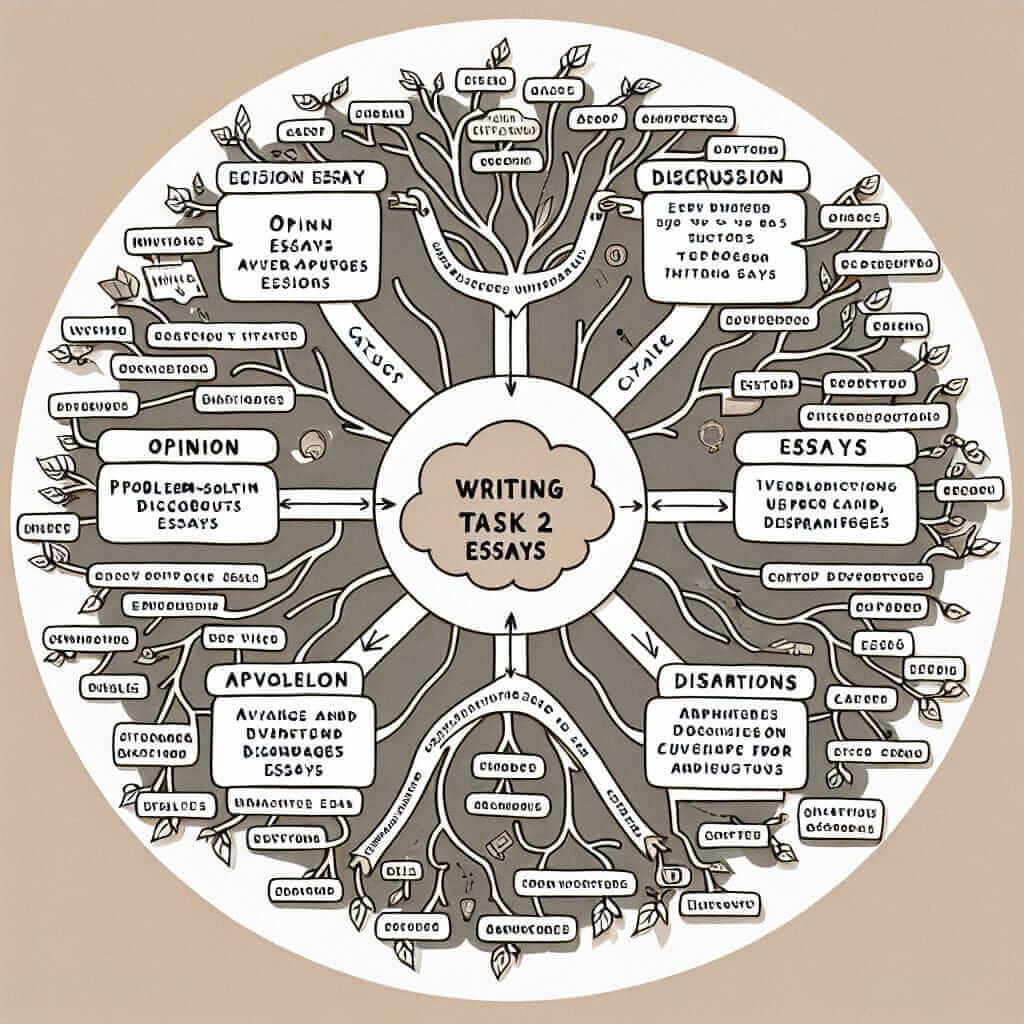As an IELTS instructor with over two decades of experience, I’ve guided countless students toward success in their IELTS journey. A common question I encounter is, “How many types of Task 2 essays are there in the IELTS?” Understanding these essay types is crucial for crafting well-structured and coherent responses that earn high scores.
Decoding the IELTS Essay: Understanding the Core Types
In the IELTS Writing Task 2, you’ll be presented with an essay question and asked to write a formal response. While the topics may vary, the essay questions generally fall into four main categories:
1. Opinion Essays (Agree or Disagree)
This is perhaps the most common type. You’ll be given a statement and asked to what extent you agree or disagree.
Example:
“Some people believe that children should have structured extracurricular activities while others believe they should be free to choose their own activities. Discuss both views and give your opinion.”
2. Discussion Essays (Discuss Both Views)
Here, you’ll be presented with two opposing viewpoints on a particular issue. You need to discuss both sides and offer your own perspective.
Example:
“Some people argue that the best way to reduce traffic congestion in cities is to build more roads. Others believe that improving public transportation is a better solution. Discuss both views and give your opinion.”
3. Problem-Solution Essays
These essays require you to identify a problem and propose solutions. You might also need to discuss the causes of the problem and the potential effects of your solutions.
Example:
“The increasing use of technology in the workplace is leading to a decline in interpersonal skills. What are the causes of this problem, and what measures can be taken to solve it?”
4. Advantages and Disadvantages Essays
As the name suggests, this type requires you to analyze both the advantages and disadvantages of a given trend, situation, or argument.
Example:
“More and more people are choosing to live in urban areas. What are the advantages and disadvantages of this trend?”

Tips for Mastering IELTS Writing Task 2:
- Know your essay types: Familiarize yourself with the different essay types and practice writing responses for each.
- Analyze the question: Spend time carefully reading and understanding the question before you start writing.
- Plan your response: Create a clear outline with your main points before you begin writing your essay.
- Use strong evidence: Support your ideas with relevant examples and explanations.
- Proofread carefully: Check your work for grammar, spelling, and punctuation errors.
Conclusion
By understanding the different IELTS Writing Task 2 essay types and practicing your writing skills, you can approach this section of the exam with confidence. Remember to analyze the question carefully, plan your response, and use strong evidence to support your ideas. With dedication and preparation, you can achieve your desired IELTS score. Good luck!